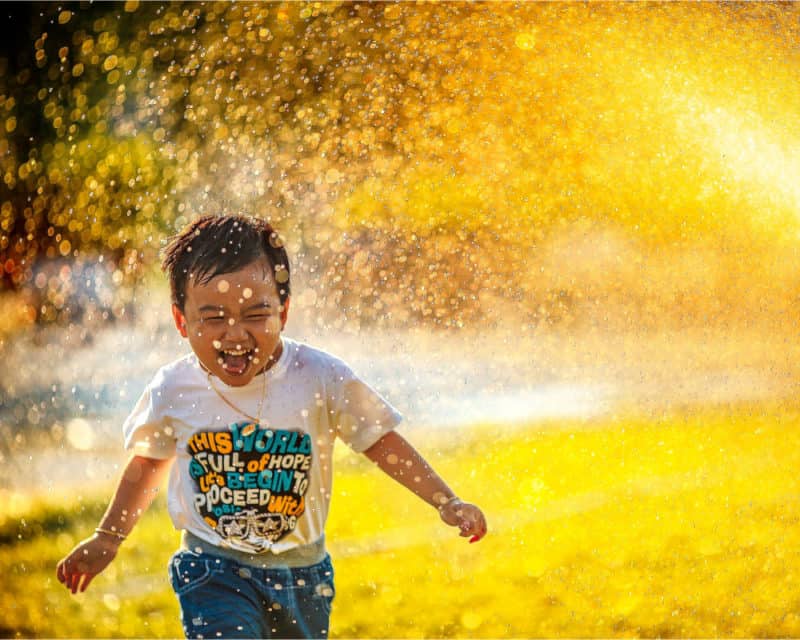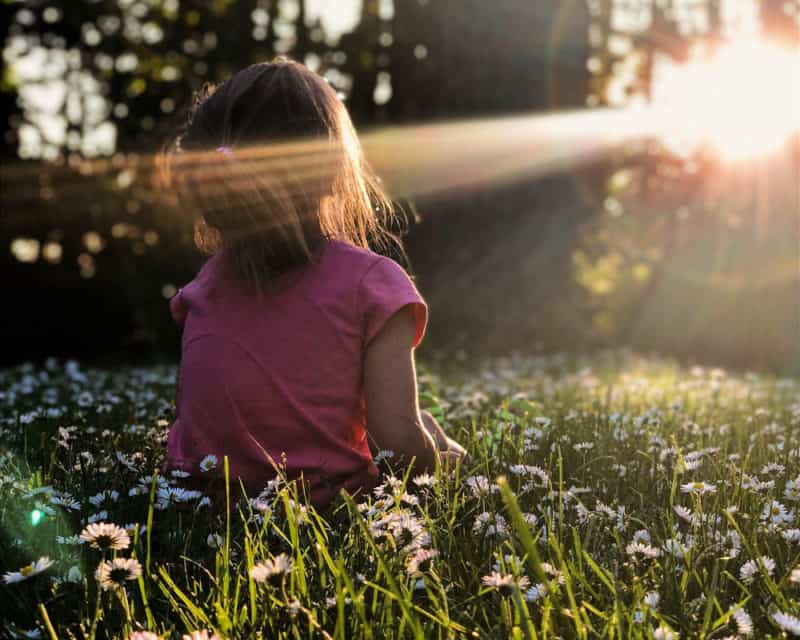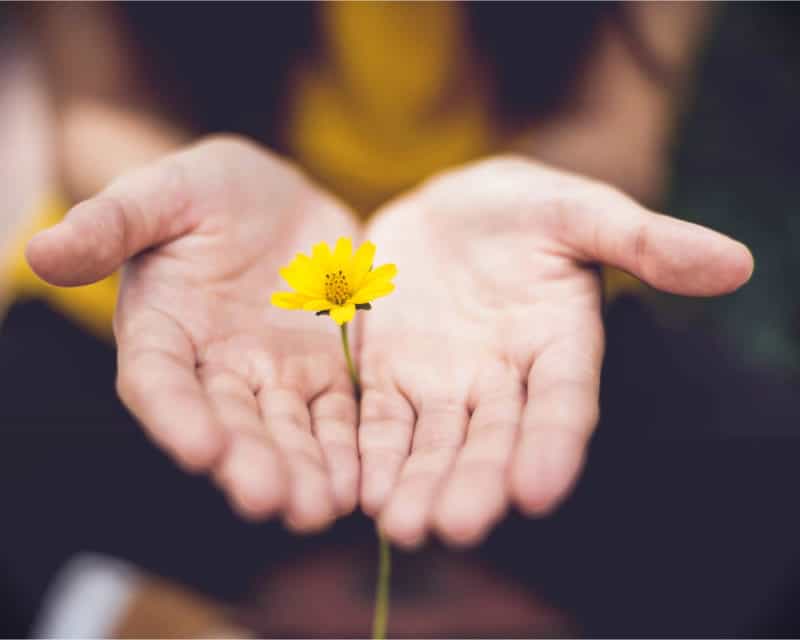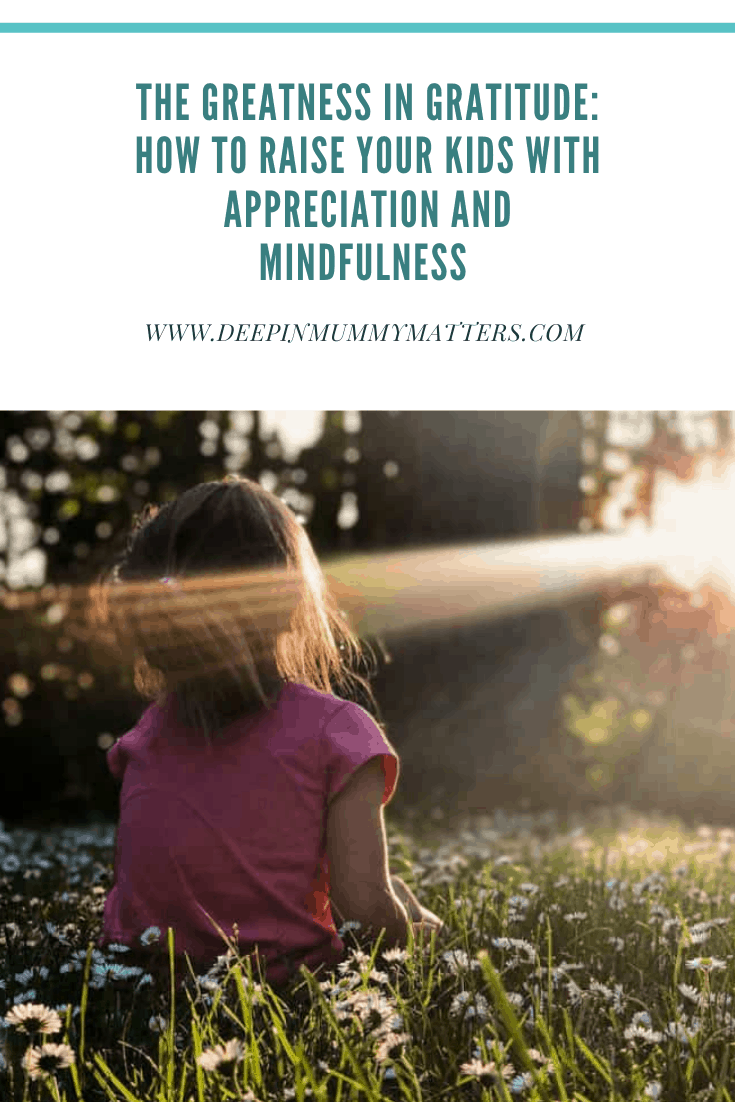As a parent, you always have a lot on your plate. When it comes to raising your children, your focus might be on everything from setting boundaries to making sure they’re doing well in school. With so much to teach them and so many different ways to guide them, gratitude isn’t always at the top of every parent’s teaching priority list.

The most education that parents give to their children gratitude is encouraging them to say “thank you” when they are given something or sharing what they’re thankful for around the Thanksgiving table.
But, giving thanks and being truly grateful are two very different things.
There are countless benefits to a life filled with appreciation and mindfulness, and you can create an enriched environment in your home to encourage that way of living. So, how can you guide your child to lead a more appreciative life with mindfulness and gratitude, and what can you expect as you do?
What Are the Benefits of an Appreciative Lifestyle?
Every parent wants what’s best for their children, so it’s understandable to want to know why a heart of appreciation is so important. There are scientifically proven benefits of gratitude that impact kids and adults alike, including:
- It improves your sleep quality
- It boosts resilience
- It improves physical health
- It boosts empathy
- It increases self-esteem
Living an appreciative life can also improve your overall mental health. It increases feelings of happiness and can put you in a better mood. If you have a child that deals with anxiety or depression, encouraging them to live a life based on gratitude can help them fight back against their triggers and symptoms.
With that in mind, it’s not meant to be a replacement for outside help. You might even consider your own psychological first aid training to guide your child through their struggles. But, practising regular gratitude can be a part of that treatment and a resource they can use for the rest of their lives.
The Gratitude/Mindfulness Connection

Mindfulness can feel more like a buzzword than anything else these days. But, it’s become so popular for a reason. Practising gratitude with your children can be considered an act of mindfulness. The approach focuses on appreciating the present moment, externally and internally. From a gratitude standpoint, being mindful can help your kids appreciate the world around them at any given time. If they can pause, breathe, and focus on how they feel in a particular moment, they’re more likely to continue to be grateful as a whole.
A bonus is that mindfulness has many other benefits for kids, including:
- Elevated attention
- Improved focus
- Lower rates of depression
- Reduced stress
- Better social skills
As you might expect, these things can work with gratitude in a positive cycle. For example, the more your child can pay attention and focus, the more gratitude they’ll have for the things in their life. The less stress they feel, the easier it will be to recognise those “good” things.
So, although mindfulness might seem like a marketing term, it’s much more. It’s worth it to integrate the practice into your lifestyle and teach your children how to do the same.
How to Foster Gratitude Every Day
It’s important to remember that gratitude is just as much of an action as a feeling. If you truly want to raise a thankful child, get them involved in activities that show them how good it feels to be grateful.
One of the easiest ways for them to start is by writing thank you notes. Whether your child receives a gift or someone does something kind for them, a word of gratitude can go a long way. A simple thank you note can show your child how important it is to share gratitude with others. Plus, it will make someone else’s day.
Other activities that can show your kids the power of gratitude include sharing what you’re thankful for around the dinner table each night – no need to wait for Thanksgiving. Have them create a “bucket” on a piece of poster board, and every night, write down something that filled it that day. It could be something as simple as taking a walk in the woods or having their favourite meal.
Teaching your kids the importance of appreciation at an earlier age can lead to an overall happier lifestyle. It can shift their perspective and allow them to develop a mindful and grateful attitude throughout life, seeing things through a positive lens.
Set an Example

Even though participating in mindful activities and showing outward gratitude is a great way to encourage your kids, don’t miss out on what could be the best way to enrich their appreciation:
Set an example
It might not always feel like your children are paying attention to you, but they are. Practice gratitude in your own life, and let your kids see the positive impact it has on you and those around you. When they see the positive effects, they’re more likely to embrace the lifestyle and be eager to share their gratitude to the world.

